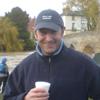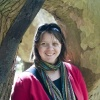The project team

The ASSET team, together at the last meeting on 30th March 2010.
(From left to right: Julian Park, Stephen Gomez, Clare Lawson, Karsten Lundqvist, Anne Crook, Steve Maw, Paul Orsmond and Robyn Drinkwater)
To see the staff videos, click on their name.
| Image | Name and Role | Institution | |
|
|
Manager |
University of Reading | |
 |
Project Advisor |
University of Reading | |
 |
Dr Clare Lawson
Research Co-ordinator |
University of Reading | c.s.lawson@reading.ac.uk |
 |
E-learning Research Officer |
University of Reading | k.o.lundqvist@reading.ac.uk |
 |
Project Research Officer |
University of Reading | r.drinkwater@reading.ac.uk |
 |
Project Consultant |
University of Plymouth | |
 |
Project Consultant |
Staffordshire University |
p.orsmond@staffs.ac.uk |
 |
Project Consultant |
HEA Centre for Bioscience | s.j.maw@leeds.ac.uk |
 |
Project Research Officer |
University of Reading |
Dr Anne Crook is Teaching Enhancement Manager in the Centre for the Development of Teaching and Learning (CDoTL) at University of Reading and is leading the ASSET project. She has extensive experience of managing both small and large-scale pedagogic projects both in her current role and previously as the Innovation Manager of the University's Centre for Excellence in Teaching and Learning in Applied Undergraduate research skills.
Dr Julian Park is Faculty Director for Teaching and Learning at the University of Reading and has teaching and research interests related to the impacts of agriculture on the environment and the mitigation thereof. He has managed several education related projects and has strong interests in improving assessment for learning and in particular the challenge of providing good quality feedback to students in a timely manner.
Dr Clare Lawson is an experienced researcher in the field of ecology and habitat restoration within the agricultural landscape, working at the University of London, Cranfield University and as a Research Fellow at the University of Reading in the Centre for Agri-Environmental Research (CAER). This is her first research project in the area of teaching and learning in Higher Education. Clare is particularly interested in looking at the potential benefits video could provide compared with other more traditional forms of feedback.
Karsten Øster Lundqvist is an experienced Research Assistant in the School of Systems Engineering. He has worked on a variety of research projects in area of eLearning, competency description and web 2.0 technologies, where his work has been internationally recognised. He is a member of the IEEE working group on standardisation of Competency descriptions. He is currently the local project manager of the EU funded projects MUVEnation, LLL3D and Mobi-blog, and he is involved in Enable. Previously he worked on: Triangle (Developing a Foundation for eQuality), TRACE (TRAnsparent Competences in Europe), MeAggregator and project managed RedGloo (Learning Landscape Project).
Robyn Drinkwater has worked as an e-learning development officer at the University of Reading's Centre for the Development of Teaching and Learning (CDoTL) for the past year, most recently focussing on the use of Web 2.0 tools for teaching. This is the first pedagogic research project she has worked on in the area of teaching, and she is looking forward to see how video feedback can potentially benefit students.
Professor Stephen Gomez is Head of Work Based and Placement Learning at the University of Plymouth and is a developer of technology-based teaching solutions. He has produced a number of e-learning approaches to supporting lectures, such as modified podcasts which he calls video podfiles. Stephen has a particular interest in using technologies to provide rapid and meaningful feedback to students.
Dr Paul Orsmond is a Senior Lecturer in Biology at Staffordshire University. As a teacher researcher he has published extensively on assessment in higher education with a specialist interest in self- and peer-assessment. He has worked closely with employers and has an international reputation as a pedagogic researcher publishing widely on assessment and feedback in higher education, including most recently on the use of audio feedback - see the Bioscience Education Journal http://www.bioscience.heacademy.ac.uk/journal/vol11/beej-11-3.aspx
Dr Steve Maw is Academic Advisor at the Centre for Bioscience in the Higher Education Academy and has considerable experience in managing individual and collaborative pedagogic projects. He currently plans and helps deliver the Centre's annual programme of continuing personal development (CPD) events and provides support, guidance and advice to projects across the community on evaluation, dissemination and other issues.
Josephine Walsh has experience of working on several feedback-focussed projects. She recently worked with Drs Crook and Park, developing an online resource to support staff by providing access to advice on improving the quality and timeliness of feedback. She has also researched student expectations of feedback provision at University and she recently developed and successfully embedded a skills website for students at University of Reading, Skills Opportunities At Reading (SOAR) www.reading.ac.uk/SOAR.


